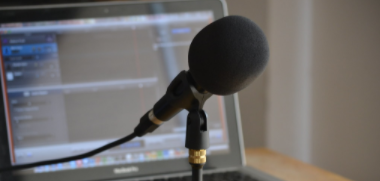
This role has a moderate level of AI exposure. AI can enhance efficiency for some tasks, but this job still relies on human skills and decision-making.
Explore all careersA Music Editor edits recordings, ensures quality for publishing, makes song adjustments, and collaborates with the team during production.
Get qualified to work as a Music Editor with a course recognised across Australia. Speak to a training provider to learn more.

In Australia, a full time Music Editor generally earns $1,380 per week ($71,760 annual salary) before tax. This is a median figure for full-time employees and should be considered a guide only. As you gain more experience you can expect a potentially higher salary than people who are new to the industry.
 Courses.com.au Team
Courses.com.au Team
Employment opportunities in this industry have remained stable over the last five years. There are currently 7,000 people working as a Music Editor in Australia. Music Editors usually work in larger cities and towns.
Source: Australian Government Labour Market Insights
 Courses.com.au Team
Courses.com.au Team
If you’re planning a career as a Music Editor you could enrol in a Diploma of Music Industry. This course will help you develop techniques for composing, arranging, recording, mixing and performing music. You could also consider a Certificate IV in Music Industry.
 Courses.com.au Team
Courses.com.au Team
Browse occupations related to Music Editor



If you’re looking to embark on a rewarding career as a Music Editor, enrolling in Music Editor courses in Sydney is a fantastic first step. With a range of vocational education and training (VET) options available, aspiring Music Editors can acquire the skills necessary to thrive in the dynamic music industry. In Sydney, there are currently beginner courses such as the Certificate III in Music (Sound Production) CUA30920, perfect for those with little or no experience. This foundational program will prepare you for various roles within the sector, paving the way for further education or employment opportunities.
For those who may already have some experience or qualifications, the advanced Diploma of Music (Sound Production) CUA50820 offers a deeper understanding of music editing techniques and sound production processes. By completing this course, you will not only enhance your expertise but also open doors to a multitude of job opportunities in Sydney's bustling music scene. The skills learned in these Music Editor courses in Sydney will give you a significant advantage in the competitive job market.
In addition to learning the nuances of sound production, enrolling in Music Editor courses in Sydney can also lead to fascinating career paths in related fields. Graduates often explore roles such as Audio Visual Technicians, Sound Engineers, or even Music Producers. Each of these roles draws upon a strong foundation in music editing and sound production, allowing you to apply your knowledge creatively and technically across various projects.
Sydney also has a vibrant cultural scene and numerous studios, which means that as a Music Editor, networking opportunities are plentiful. Those who complete Music Editor courses in Sydney not only gain theoretical knowledge but also practical skills through hands-on learning experiences. Alongside the technical skills acquired, students are encouraged to engage with industry professionals and hone their craft, positioning themselves as competitive candidates for jobs such as Musicians, Music Managers, or even Music Journalists.
Whether you are just starting or looking to advance your current career in music, Music Editor courses in Sydney provide essential training that meets industry standards. By combining theoretical knowledge with practical skills, these courses prepare you for a successful career in the ever-evolving music landscape. Don't miss the opportunity to join this exciting field; explore the available options today and take the first step toward your future in music. For more information on how to become a Music Editor and related job roles, visit here.